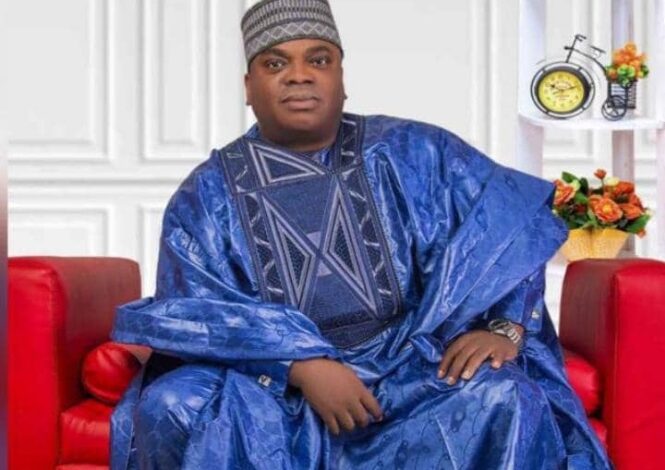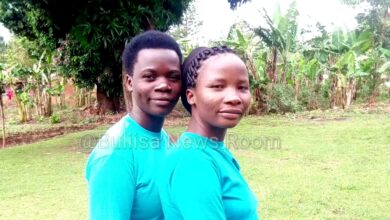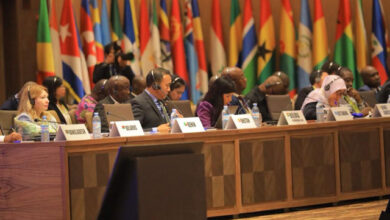
By Guest Writer
Opinion: Nigeria officially became a democracy on its independence from Britain in October 1960, and this led to the formation of the first ever Nigerian-led self-government, which would steer the nation into independence in 1960.
Sir Abubakar Tafawa Balewa served as Nigeria’s first and only prime minister, and Nnamdi Azikiwe became governor-general. For the first three years of independence, Nigeria was a constitutional monarchy, with Britain’s Queen Elizabeth remaining as head of state.
In 1963, the country became a federal republic, with Azikiwe as the first president and head of state and Balewa as the prime minister and head of government.
But democracy under the first republic quickly deteriorated. Elections were held in 1964, but the event highlighted widespread resentment towards the domination of the central government by northern politicians. There were also outbursts of inter-ethnic violence, and Balewa was assassinated in 1966 as part of a bloody, failed military coup.
In the chaos that followed, Major General Johnson Thomas Umunnakwe Aguiyi-Ironsi seized power but ruled for only six months before being overthrown in a counter-coup. He was replaced by Yakubu Gowon, beginning almost a decade of rule by supreme military council.
A brutal civil war followed, unleashing famine, death, and destruction in the south-east. Both sides were armed and supported by foreign actors interested in the future of the oil-rich country, with Britain arming the Nigerian military government.
The civil war had an enormous impact, both in Nigeria and internationally. In 1967, Nigeria was divided from three regions into 12 states in an effort to strengthen the central power in Lagos and undermine future secession attempts. A severely damaged Biafra surrendered in 1970.
But Gowon’s military government was seen as corrupt, incompetent, and failing to guide the country back towards democracy. Gowon was overthrown in a bloodless coup in 1975, replaced by General Murtala Mohammed, who was then assassinated during an unsuccessful coup attempt in 1976. His deputy, Lieutenant General Olusegun Obasanjo, took charge and oversaw Nigeria’s transition to democracy.
Elections In July and August 1979, Shehu Shagari became the first democratically elected president of Nigeria, and a new constitution introduced an American-style presidential system, rejecting the British parliamentary model. But Shagari’s government was characterized by extensive corruption, wastefulness, and a failure to thaw civil-war-era ethnic and religious divisions in the country.
The government declared itself the winner of 1983’s heavily disputed election. A violent response in Nigeria’s south-west saw another military coup take place, with Major General Muhammadu Buhari declaring himself leader of a new military council.
His government was overthrown in August 1985 by General Ibrahim Babangida, who promised a transition from military rule by 1990 but would stay in power until 1993. He expanded a corrupt patronage network mostly sustained by oil revenues, which has been reorganized but still endures in Nigeria.
Babangida refused to recognize the outcome of the free and fair elections held in June 1993 and stymied the creation of a full-fledged third republic. But he struggled to contain domestic pro-democracy demands. He created an interim government council later that year, which was then quickly replaced by a new military ruler, General Sani Abacha.
Abacha imprisoned Moshood Kashimawo Olawale Abiola, the winner of the disputed 1993 election, and began a cruel period of government marked by human rights abuses such as the case of the ‘Ogoni Nine’. This group of environmental activists protested about oil pollution in the Niger Delta but were executed in 1995 on fabricated murder allegations. Under Abacha’s corrupt and brutal leadership, Nigeria became a pariah nation.
Abacha died in mysterious circumstances in 1998. Another transitional military government led by General Abdulsalami Abubakar oversaw a return to democracy with elections held in April 1999. Former military ruler Olusegun Obasanjo was elected president on the platform of the People’s Democratic Party (PDP), a broad coalition of political elites and power brokers.
The government has been cracking down on the free press, as evidenced by its actions during the #ENDSARS protests of 2020. Twitter was banned for more than a year following the protests, while big media houses closed and journalists fled, diminishing open debate. Security incidents go unreported or misrepresented for fear of reprisals by the government.
The constitution guarantees Nigerians freedom of religion, expression, movement, and assembly and protects them from discrimination based on sex, religion, origin, or political opinions. Yet basic rights are continually challenged in a failing justice environment.
Nigeria’s police have a reputation for brutality, which led directly to the #ENDSARS protests of 2020, demanding the dismantling of the Special Anti-Robbery Squad, a unit accused of kidnapping, murder, theft, rape, and torture.
Sharia criminal law, which was previously limited to civil matters, was reintroduced in 12 northern states, directly challenging the constitution and civil liberties of non-Muslim residents.
In April 2022, a man was sentenced to 24 years in jail by a Sharia court in Kano on a charge of blasphemy for declaring himself an atheist.
The judicial system is too weak and compromised to step in and enforce civil liberties. This reflects the state of the political class in northern Nigeria and the absence of mechanisms to defend constitutional democracy.
The author is Godswill Nwankwo, a mechanical engineer and a former Nigerian Senate candidate for the 2023 election, representing Abia South Senatorial District and Nigeria’s presidential hopeful in the next general elections.
Disclaimer: As UG Reports Media LTD, we welcome any opinion from anyone if it’s constructive for the development of Africa. All the expressions and opinions in this write-up are not those of UG Reports Media Ltd. but of the author of the article.
Would you like to share your opinion with us? Please send it to this email: theugreports@gmail.com.






